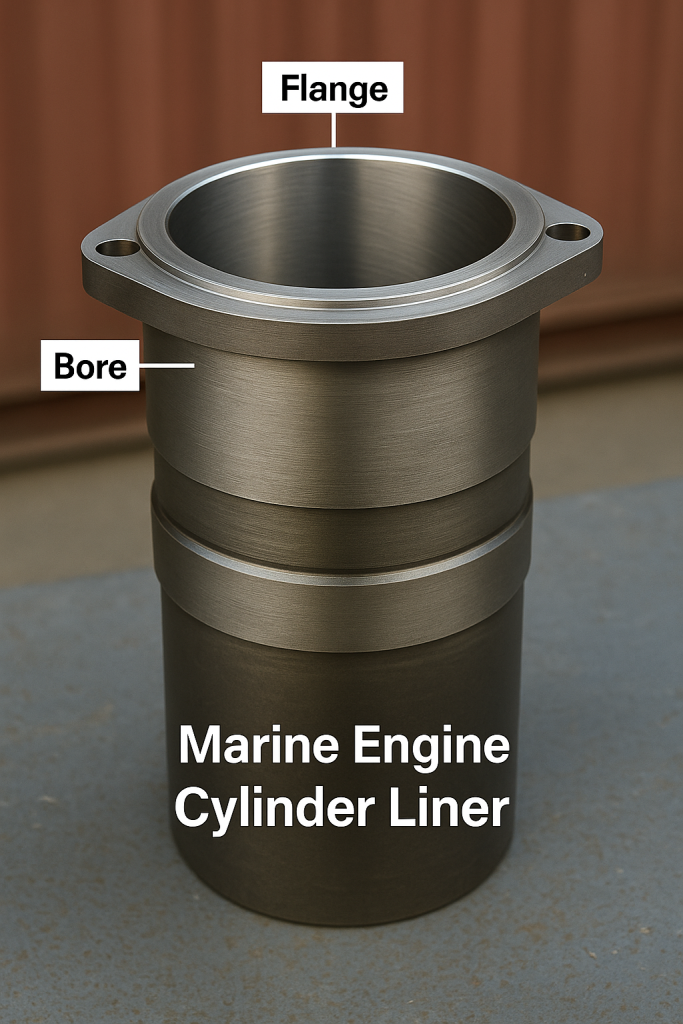
When it comes to marine engines, durability and reliability are non-negotiable. These qualities are essential, as the performance of marine vessels can greatly impact safety and efficiency on the open water. One of the most crucial components that ensure long-lasting engine performance is the cylinder liner. This vital part is tailored to withstand the demanding conditions of marine environments. In the harsh, salt-laden marine environment, corrosion resistance becomes a top priority.
The relentless exposure to saltwater and humidity can lead to rapid deterioration of engine components, making it imperative to choose materials that can resist such corrosive elements. This blog explores the role of marine engine cylinder liners, their importance in resisting corrosion, and how they contribute to optimal engine performance at sea. By understanding the intricacies of cylinder liners, marine engineers and vessel operators can make informed decisions that enhance engine longevity and reliability in their operations.
What is a Cylinder Liner in a Marine Engine?
A cylinder liner, also known as a cylinder sleeve, is a cylindrical part that is inserted into an engine block to form the inner wall of a cylinder. This essential component serves a crucial role, as it acts as the surface against which the piston slides during the engine’s operation. The design and functionality of the cylinder liner directly influence the overall performance and efficiency of the engine, making it a vital element in engineering.
In marine engines, cylinder liners face extreme conditions — high pressure, elevated temperatures, and constant exposure to saltwater environments. These harsh factors can significantly affect the durability and longevity of the liners, necessitating the use of high-quality materials and advanced manufacturing techniques. Furthermore, because marine engines often operate under continuous load and varying speeds, the cylinder liners must be engineered to withstand these demanding operational conditions without compromising performance.
Why Corrosion Resistance Matters in Marine Cylinder Liners
Saltwater is highly corrosive and poses a serious threat to any unprotected metal. When a marine cylinder liner corrodes, it can lead to:
-
Loss of compression
-
Increased fuel consumption
-
Reduced engine efficiency
-
Catastrophic engine failure
To combat these issues, manufacturers design liners using corrosion-resistant materials and protective coatings.
Key Materials Used for Marine Cylinder Liners
1. Alloyed Cast Iron
-
Commonly used due to its excellent wear resistance.
-
Often alloyed with elements like chromium and molybdenum to boost corrosion resistance.
2. Nickel-Chrome Alloys
-
Provide superior strength and resistance to marine corrosion.
-
More commonly used in high-performance marine engines.
3. Ceramic or Anti-Corrosive Coatings
-
Advanced ceramic coatings or plasma-sprayed layers are applied to protect against rust and corrosion.
-
These coatings also enhance heat dissipation, improving overall engine performance.
Enhancing Cylinder Liner Performance in Marine Engines
Cylinder liner performance is not just about corrosion protection. It also includes:
-
Thermal management: Efficient liners dissipate heat quickly, preventing engine overheating.
-
Low friction surface: Minimizes piston wear and improves fuel efficiency.
-
Dimensional stability: Maintains its shape under pressure, ensuring consistent engine operation.
Maintenance Tips for Marine Engine Cylinder Liners
To maximize the lifespan and performance of your marine engine cylinder liners, consider the following:
-
Regular inspections for scoring, wear, or corrosion spots
-
Proper lubrication with marine-grade oils
-
Coolant system maintenance to avoid saltwater intrusion
-
Using OEM-approved liners and replacement parts
Conclusion
Marine cylinder liners are a small yet vital part of a vessel’s engine. Their significance often goes unnoticed, but they play a crucial role in the overall functionality and efficiency of marine engines. Investing in high-quality, corrosion-resistant cylinder liners not only ensures smoother operation but also saves thousands in long-term maintenance and repairs. By choosing robust materials, ship operators can reduce the risk of wear and tear, thereby extending the lifespan of the engine components.
Moreover, the performance of a vessel’s engine directly impacts fuel efficiency and emissions, making the choice of cylinder liners even more critical in today’s environmentally-conscious maritime industry. For any ship operator, understanding the role of these components is essential for maintaining top-tier marine engine performance on every voyage. This knowledge empowers operators to make informed decisions that enhance operational reliability and sustainability, ultimately leading to safer and more economical maritime operations


